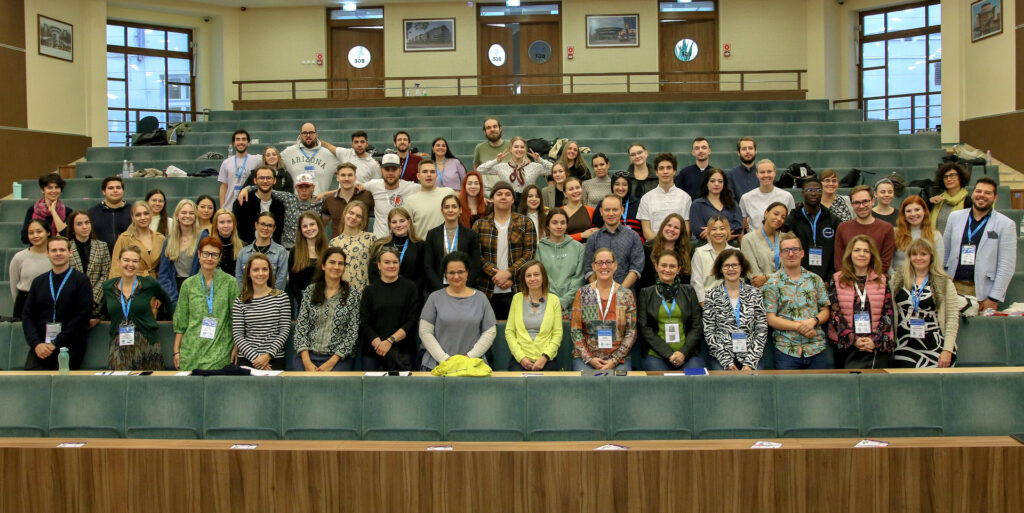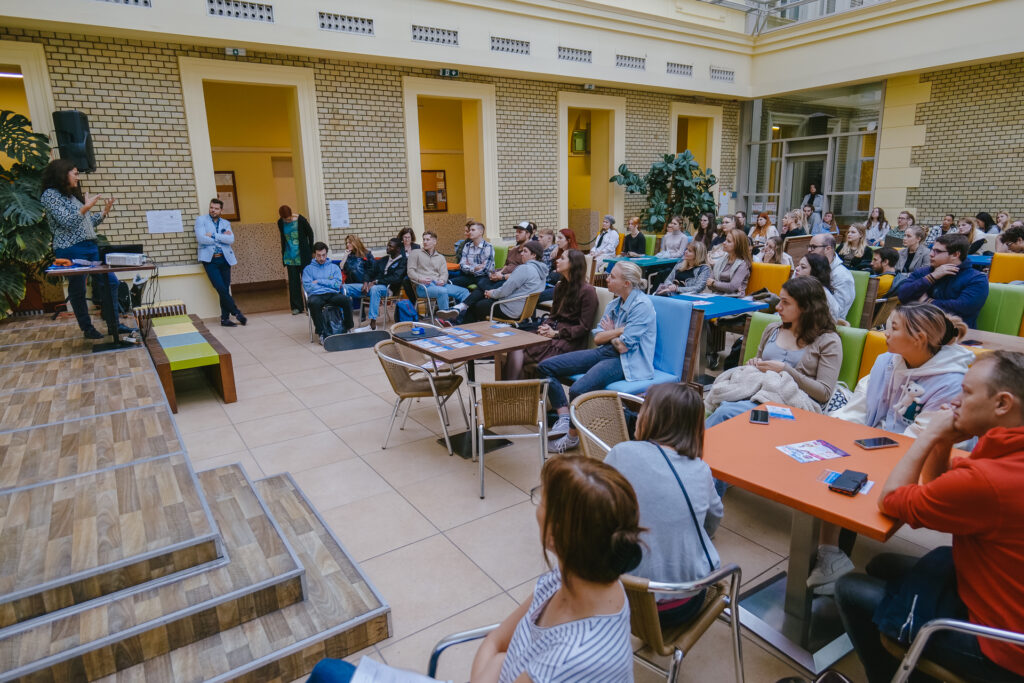
Erasmus+ project Learn to Change (2021-23), coordinated by Haaga-Helia, explores the potential of digital storytelling to foster sustainable changes in post-pandemic living and travel.
Industry stakeholders and higher education students and teachers develop solutions of collaborative learning and digital storytelling to promote sustainable travel and off-the-beaten-track destinations across Europe. Our storytelling brings to light unique environments, sustainable services, and local businesses, people, and entrepreneurs.
In May 2022, we devoted our creative efforts to capturing the natural beauty and local friendliness of the seaside town of Loviisa. In October 2022, we shone a spotlight on Margit Körút in Budapest, a reviving cultural, entrepreneurial, and community district on the Buda side of Hungary’s magnificent capital city.
Digital storytelling to foster 21st-century skills and sustainability competencies
Digital storytelling is a participatory pedagogical practice that can be used to engage higher education students and teachers with industry stakeholders and involve them with initiatives embracing the wider world. Through digital storytelling projects across cultures, students gain practice in many crucial 21st century skills, such as multicultural and multidisciplinary team collaboration and communication, creativity, critical thinking, adaptability, digital literacy, and reflexivity. (Lazareva & Cruz-Martinez, 2020; Fisanick & Stakeley, 2021; Robin, 2016, 2008.)
During the planning and implementation of the Learn to Change project, it has become clear that as a participatory pedagogical approach, digital storytelling is applicable to multiple disciplines and effective in developing higher education students’ sustainability competencies (Vesala-Varttala et al., 2021).
We believe that sustainability issues are best tackled holistically and by involving multiple stakeholders through a broad participatory process, extending from strategic co-planning to hands-on co-creation, co-implementation and co-evaluation.
Budapest Business School built a wide stakeholder network for co-learning
The blended intensive program (BIP) organized at Budapest Business School in October 2022 was a perfect example of a participatory digital storytelling project that brings together a multicultural and multidisciplinary crew of higher education students, teachers, and tourism and services industry stakeholders.
During the program, the participants were offered information and examples about inspirational digital storytelling, along with an overview of the history and culture of Budapest’s Margit district by a local NGO. Selected local entrepreneurs were also involved in the project; they welcomed students to their premises and shared their local experiences, knowledge, and insights.
We had 9 multicultural and multidisciplinary student teams, and each team was coached by a pair of university teachers. The collaboration started online and culminated in a five-day intensive week in Budapest.
During the week, participants got to experience the Margit district first-hand and then went on to create and publish digital stories to promote the charms of the region. On the final day of the program, all teams presented their learning experiences and creative content to each other and to a jury of teachers.
According to students’ reflections on their learning experience, living through this participatory and practice-based digital storytelling project enabled them to develop many skills and competencies beneficial for both academic and professional purposes.
I got a lot out of this experience. I learned to speak better English and work in an international environment. And I got a lot of courage. This was a good start to my international career, and next time I will be much braver and more confident to go abroad alone and work there. I also learned to work in a team and practice time management.
I’m studying programming and digital services and believe that this course and the teamwork will be of benefit in my future studies and even career. Learning teamwork is always an important part of studying. In my future career I will most likely be working in different teams, both local and international, so having this experience really helps me prepare for that.
In Budapest, we managed to test and multiply our Learn to Change project materials, methods, and results in many ways and with diverse audiences. Our student and teacher teams and workshops had participants from higher education institutions external to the project consortium. The organizing team at Budapest Business School had engaged an extensive and active university-industry network of stakeholders from different fields, disciplines, and professions.
With inspiring examples from students’ collaborative experiences and digital storytelling content, we managed to promote not only Margit district’s off-the-beaten-track attractions and local services but also our Learn to Change project, showcasing the sheer joy of collaboration, co-creation, peer-learning, and sustainability storytelling across cultures.

Please visit the Learn to Change project website for more information on our stakeholder collaboration in Budapest!
References
Fisanick, C. & Stakeley, R. O. 2021. Digital storytelling as public history: A guidebook for educators. London and New York: Routledge.
Lazareva, A. & Cruz-Martinez, G. 2020. Digital storytelling project as a way to engage students in twenty-first century skills learning. International Studies Perspectives, 0, 1–24.
Robin, B. R. 2008. Digital storytelling: A powerful technology tool for the 21st century classroom. Theory into Practice, 47(3), 220–28.
Robin, B. R. 2016. The power of digital storytelling to support teaching and learning. Digital Education Review, 30, 17–29.
Vesala-Varttala, T., Humala, I., Isacsson, A., Salonen, A., & Nyberg, C. 2021. Fostering Sustainability Competencies and Ethical Thinking in Higher Education: Case Sustainable Chocolate. eSignals Research.
Picture: www.shutterstock.com